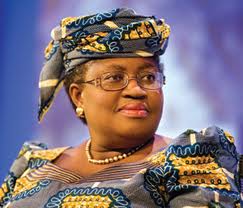Business
Nigeria Economy Is Now Africa’s Largest, 26th Globally

Nigeria’s nominal Gross Domestic Product, GDP, now stands at $509.9 billion, making the nation’s economy the largest in Africa and the 26th in the world, according to the preliminary results of the rebasing exercise of the federal government.
The Coordinating Minister for the Economy and Minister of Finance, Dr. Ngozi Okonjo-Iweala, announced this at a press conference jointly addressed with the Statistician-General, S-G, Dr. Yemi Kale, in Abuja yesterday.
The GDP is the market value of all final goods and services produced within a country in a given period. It is an internationally recognized indicator for measuring the size of an economy in a given period of time.
The rebased estimates indicate that the nominal GDP for Nigeria was much higher than previously estimated . In 2010 the estimate was $360. 644 billion; in 2011 it was $408.805 billion; and 2012 $453.966 billion.
The growth rate is driven by the services sector with it contributing about 51 per cent of the GDP.
The rebasing exercise on the Nigerian economy which also saw the Per capita rising to $2, 688, covered 2010 to 2013. Nigeria has moved on the per capita scale from 135 to 121st position.
This is after more than two decades of the last exercise in 1990, far beyond the United Nations Statistical Commission, UNSC, recommendations that countries should rebase their national accounts (GDP) estimates every five years.
Dr. Ngozi Okonjo-Iweala said that the results had been subjected to a six-man independent panel of reviewers led by Prof. Olu Ajakaiye , as well as, representatives of multilateral organizations, especially the International Monetary Fund, the World bank and the African Development bank.
According to her the policy implications of the new figures were that the nation has a larger capacity for consumption and thus make Nigeria more attractive to international and local investors.
She admitted however, that the government needed to build social safety nets to close the income inequality gap in the country saying, “inequality has been rising so we need to build social safety nets meant to take care of those at the bottom of the ladder”.
The minister added however, that the oil and gas sector also needed federal government attention, as according to her, a sector with over 15 per cent contribution to the GDP cannot be ignored.
Dr. Okonjo-Iweala also said that the sudden leap of the large contribution of the services posed a challenge for the government to take more measures for a stronger manufacturing sector, in conjunction with the organized private sector.
The new figures indicated a debt to GDP of 11 per cent, down from 19 per cent but the minister said that the federal government would continue to be prudent in its debt portfolio to avoid a situation in which the country could fall into a non-sustainable debt trap, as was the case, in the past.
In his presentation, the S-G said that the past GDP estimates were less than the real position of the economy and that there was need to take another look at the nation’s poverty rate.
The S-G said however, that “GDP is a macroeconomic aggregate that depicts the totality of economic output within a nation’s borders. While it depicts how rich a nation is, this is not necessarily the same as showing how rich the individuals in the nation are, due to the problem of unequal distribution of wealth.






